NJCTL online courses in physics, chemistry, mathematics, and computer science can be taken at your own convenience. Whether you want to build your teaching skills and content knowledge, learn a new subject, or prepare to teach AP courses, we have a class for you.
Content courses use an online version of the same classroom pedagogy as our courses for students. Asynchronous virtual constructivism,
the online version of social constructivism, helps ensure an effective, learner-directed process by weaving together short,
direct instruction videos with formative assessment questions. Each question is followed by immediate feedback and the opportunity to watch a video solution of that problem being solved.
All courses are divided into modules with online quizzes,
virtual labs that enable laboratory investigations via simulations, and, finally, virtually proctored tests that can be taken anytime, anywhere.
Praxis Prep courses include modules aligned to each content category of the test. Each contain problem solving notebooks, with embedded review;
mastery questions with solutions; a discussion board, moderated by certified instructors; and a unit test. The final module includes two full-length, Praxis-style tests.
Field Experience courses are based on a clinical supervision model that supports continual improvement of classroom policies and practices. Teachers submit reflections on the
implementation and effectiveness of their policies, as well as videos of their classroom practice. Ongoing dialog with an NJCTL coach provides the support to improve on both.
This non-evaluative feedback model helps improve teaching without pressure.
Teaching Methods course shows how to use research-proven approaches to create a highly effective and welcoming learning environment.
Pedagogy topics include social constructivism; meta-cognition; differentiation; and meeting the needs of English language learners.
Policy topics include grading based on mastery; why homework should not be graded; and providing retests to promote continuous improvement."
For more information on NJCTL policies and procedures, see the NJCTL Graduate Student Handbook and Program Guide. read more...
Physics
 PHYS6601
$495 (3 credits)
PHYS6601
$495 (3 credits)Learning & Teaching Algebra-Based Physics: Mechanics
 PHYS6642
(3 credits)
PHYS6642
(3 credits)Learning & Teaching Algebra-Based Physics: Electricity & Magnetism
 PHYS6643
$495 (3 credits)
PHYS6643
$495 (3 credits)Learning & Teaching Algebra-Based Physics: Modern Physics
 PHYS6646
$495 (3 credits)
PHYS6646
$495 (3 credits)Learning & Teaching Advanced Topics In Trig-Based Physics
 PHYS6653
$495 (3 credits)
PHYS6653
$495 (3 credits)Learning & Teaching AP Physics 1: Mechanics
 PHYS6654
$495 (3 credits)
PHYS6654
$495 (3 credits)Learning & Teaching AP Physics 1: Waves, Rotation & Electricity
 PHYS6657
$495 (3 credits)
PHYS6657
$495 (3 credits)Learning & Teaching AP Physics 2: Electricity & Magnetism
 PHYS6658
$495 (3 credits)
PHYS6658
$495 (3 credits)Learning & Teaching AP Physics 2: Advanced Topics
 PHYS6699
Testing this
PHYS6699
Testing this
 PHYS6663
$660 (4 credits)
PHYS6663
$660 (4 credits)Learning & Teaching AP Physics C: Mechanics
 PHYS6664
$660 (4 credits)
PHYS6664
$660 (4 credits)Learning & Teaching AP Physics C: Electricity and Magnetism
 PHYS6683
$495 (3 credits)
PHYS6683
$495 (3 credits)Physics Capstone & Praxis Preparation
Test Group
Cat
Chemistry
 CHEM6741
$495 (3 credits)
CHEM6741
$495 (3 credits)Learning & Teaching Honors Chemistry: Periodic Table & Chemical Bonding
 CHEM6742
$495 (3 credits)
CHEM6742
$495 (3 credits)Learning & Teaching Honors Chemistry: Molecules & Reactions
 CHEM6743
$495 (3 credits)
CHEM6743
$495 (3 credits)Learning & Teaching Honors Chemistry: Thermal Chemistry and Acids & Bases
 CHEM6753
$495 (3 credits)
CHEM6753
$495 (3 credits)Learning & Teaching AP Chemistry I: Atomic Structure & Compounds
 CHEM6754
$495 (3 credits)
CHEM6754
$495 (3 credits)Learning & Teaching AP Chemistry II: Solutions & Reactions
 CHEM6755
$495 (3 credits)
CHEM6755
$495 (3 credits)Learning & Teaching AP Chemistry III: Kinetics, Equilibrium and Acids & Bases
 CHEM6756
$495 (3 credits)
CHEM6756
$495 (3 credits)Learning & Teaching AP Chemistry IV: Aqueous Equilibria, Thermodynamics & Electrochemistry
 CHEM6783
$495 (3 credits)
CHEM6783
$495 (3 credits)Chemistry Capstone & Praxis Preparation
Biology
Courses for K-5 Teachers
Mathematics
 MATH6423
$660 (4 credits)
MATH6423
$660 (4 credits)Learning & Teaching Pre-Algebra
 MATH6432
$660 (4 credits)
MATH6432
$660 (4 credits)Learning & Teaching Algebra I
 MATH6433
$660 (4 credits)
MATH6433
$660 (4 credits)Learning & Teaching Geometry
 MATH6435
$660 (4 credits)
MATH6435
$660 (4 credits)Learning & Teaching Algebra II
 MATH6436
$495 (3 credits)
MATH6436
$495 (3 credits)Learning & Teaching Trigonometry
 MATH6447
$495 (3 credits)
MATH6447
$495 (3 credits)Learning & Teaching Precalculus
 MATH6448
$495 (3 credits)
MATH6448
$495 (3 credits)Learning & Teaching Introduction to Calculus
 MATH6463
$330 (2 credits)
MATH6463
$330 (2 credits)MS Mathematics Capstone and Praxis Preparation
 MATH6467
$495 (3 credits)
MATH6467
$495 (3 credits)K-12 Mathematics Capstone and Praxis Preparation
sef
Computer Science
 CSCI6343
$495 (3 credits)
CSCI6343
$495 (3 credits)Learning & Teaching AP Computer Science Principles - Part I
 CSCI6344
$495 (3 credits)
CSCI6344
$495 (3 credits)Learning & Teaching AP Computer Science Principles - Part II
 CSCI6347
$660 (4 credits)
CSCI6347
$660 (4 credits)Learning & Teaching AP Computer Science A - Part I
 CSCI6348
$660 (4 credits)
CSCI6348
$660 (4 credits)Learning & Teaching AP Computer Science A - Part II
 CSCI6363
$660 (4 credits)
CSCI6363
$660 (4 credits)Computer Science Capstone & Praxis Prep
MS and HS Science
Teaching Methods
 MET6111
$660 (4 credits)
MET6111
$660 (4 credits)Elementary PSI-PMI Teaching Methods
 MET6121
$660 (4 credits)
MET6121
$660 (4 credits)Secondary PSI-PMI Teaching Methods
 MET6102
$495 (3 credits)
MET6102
$495 (3 credits)PSI-PMI Field Experience I [Enrollment Open Fall 2022]
 MET6104
$495 (3 credits)
MET6104
$495 (3 credits)PSI-PMI Field Experience II [Enrollment Open Fall 2022]
 MET6121
Practice
MET6121
Practice
 MET9999
Test
MET9999
Test
Test Preparation
Endorsement 2021-22 Program Courses
 MET6104
$825 (3 credits)
MET6104
$825 (3 credits)PSI-PMI Field Experience I
 PHYS6603
$750 (5 credits)
PHYS6603
$750 (5 credits)Learning & Teaching AP Physics 1
 PHYS6605
$750 (6 credits)
PHYS6605
$750 (6 credits)Learning & Teaching AP Physics 2
 CHEM6703
$750 (5 credits)
CHEM6703
$750 (5 credits)Learning & Teaching AP Chemistry I
 CHEM6705
$750 (6 credits)
CHEM6705
$750 (6 credits)Learning & Teaching AP Chemistry II
 MATH6407
$750 (6 credits)
MATH6407
$750 (6 credits)Learning & Teaching Algebra II
 MATH6409
$750 (6 credits)
MATH6409
$750 (6 credits)Learning & Teaching Precalculus
 MATH6411
$250 (2 credits)
MATH6411
$250 (2 credits)MS Mathematics Capstone and Praxis Preparation
 MATH6413
$500 (4 credits)
MATH6413
$500 (4 credits)K12 Mathematics Capstone and Praxis Preparation













